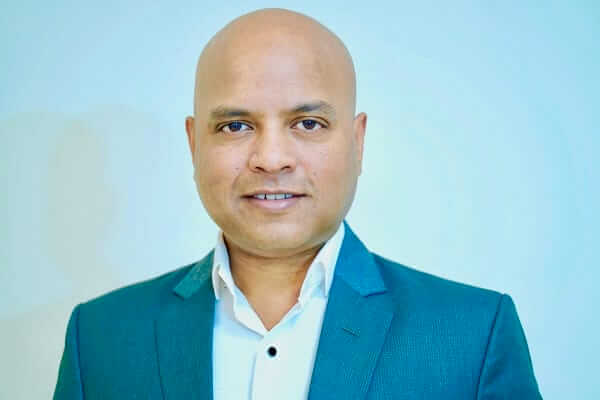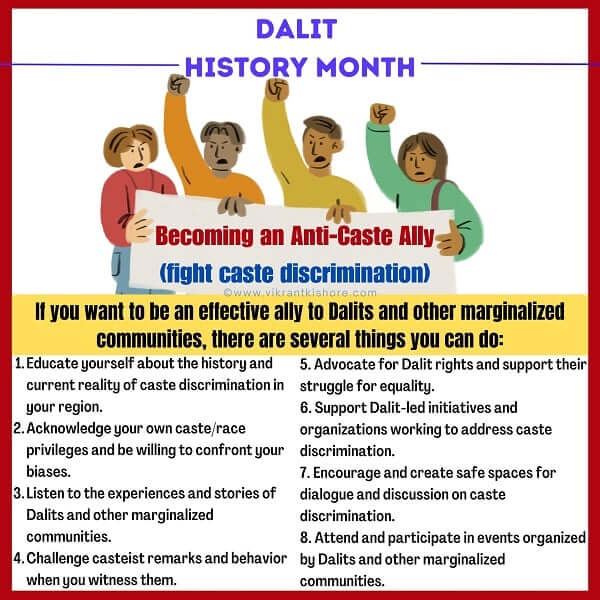Indian-Australian academic and filmmaker Vikrant Kishore is a staunch follower of Dr Bhimrao Ambedkar – who advocated against inequality and caste discrimination in India.
“Ambedkar’s vision and work have been a tremendous source of inspiration for me,” Kishore tells Indian Link. “His writings have profoundly impacted me and have opened my eyes to the ongoing challenges faced by marginalised communities, especially the Dalits and Adivasis in India.”
In particular, Ambedkar’s speech ‘Annihilation of Caste’ compelled Kishore to rethink and reassess how caste operates in society, and how it can be challenged. In this speech, Ambedkar highlights that social reform has to take precedence over political and religious reform.
This April, as Ambedkarites celebrate Dalit History Month, Kishore remembers Ambedkar’s writings and visions and reiterates why a caste-free society is the need of the hour. This also comes at a crucial time when the Anthony Albanese government has proposed an Indigenous voice to parliament, which will represent the views of Aboriginal and Torres Strait Islander people.

Ambedkar’s India
Vikrant Kishore, an Associate Professor at the School of International Communications at the University of Nottingham, has been living in Melbourne since 2006. As a board member of the Australia India Film Council, a member of the Victorian Multicultural Commission’s Regional Advisory Council, and an advisor to the Scanlon Research Institute, he is committed to promoting multiculturalism and diversity in the arts and academia.
His family’s roots are from Ranchi, Jharkhand. Very early in life, Kishore was introduced to discussions on discrimination, thanks to his scholar parents. Then, as a Year 4 student at a renowned boarding school in India, he faced caste-based discrimination for the first time.
“Thereon, I started engaging with conversations around caste and casteism, its impact, and everyday casual discrimination,” he reveals.
Ambedkar once said, “Turn in any direction you like, caste is the monster that crosses your path.”
Kishore thinks Australia is no exception to these caste-based biases. “Someone rightly said, caste goes where South Asians go,” he says. “Ambedkar believed that everyone had a role to play in building a more just and inclusive society, and that we must work together to challenge discrimination and create a more equitable future. This rings true if we look at how discrimination against the indigenous people of Australia has been perpetuated, and till date they face multiple problems.”
Speaking of India, Kishore feels casteism in his homeland is “direct…it is in your face”.
“Casteism in India is an everyday affair, it is normalised. Thankfully, it is now being challenged.”
An Ambedkarite in Australia
“Upon arriving in Australia, many Indians wonder if they will experience racism or discrimination based on their skin colour. While the majority do not encounter direct racism, there are still traces of problematic aspects one fails to acknowledge within the South Asian communities, such as religious divisions and caste prejudices that exist,” he adds.
According to Kishore, as one settles into Australian society and starts exploring their cultural roots, they begin to seek out temples, gurudwaras, and other cultural spaces that foster a sense of belonging and community. “However, upon closer inspection, one can start to sense the prevalence of caste practices and prejudices that continue to thrive within the community. For example, it is not uncommon for someone to ask about another person’s last name as a way of determining their caste,” he explains.
As a small yet significant effort to eradicate casteism in Australia, Kishore in 2021 sent a submission to the Australian Human Rights Commission that wanted to formulate a national anti-racism framework.
“Our core suggestion to the AHRC’s Anti-Racism Framework was that Australia cannot effectively combat racism without addressing casteism. The growing South Asian population in Australia has brought with it the spread of caste and casteism, making it crucial to deal with this issue now rather than ignoring it,” he says of his submission.
As we celebrate Dalit History Month, Kishore says this is an important time to reflect on the resilience, strength, and contributions of marginalised communities. “It is a time to celebrate the individuals and groups that have fought against caste oppression, and to honour their legacy by continuing their work. Through education and collective action, we can work towards creating a society where all individuals are treated with dignity and respect, and where caste-based discrimination is no longer tolerated.”
So how can one become an anti-caste ally, we ask. To begin with, you can educate yourself about marginalised communities, listen to their stories of struggle, and call out casteist people making casual remarks.

“By recognising the harm of casteism and valuing social justice, you are already taking an important step towards being an anti-caste person,” Vikrant Kishore concludes.
READ ALSO: #DalitLivesMatter: The caste system still persists





I completely agree that the South Asian population, Always have a sense of casteism and discrimination.For this we all need to raise our voice together.We all are proud of you Dr. Vikrant that you have raised your voice and we all should support you together.
That’s great